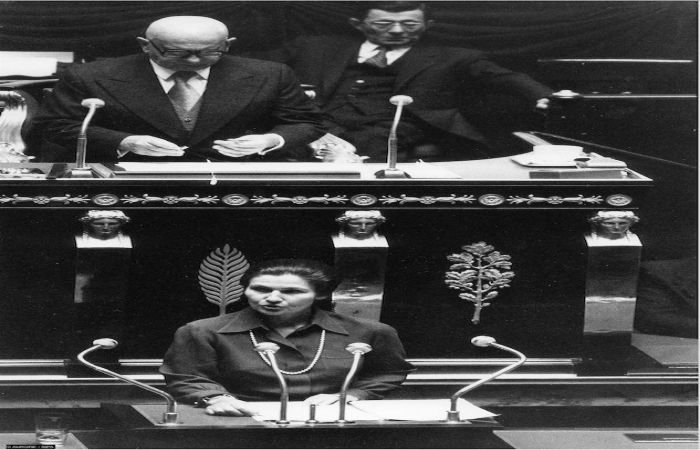
Simone Veil
Simone Veil is one of the most admired figures in modern French history. She was a Holocaust survivor, a strong defender of women’s rights, a skilled politician, and a voice for peace in Europe. Her life was full of both suffering and achievements. She turned her personal pain into a mission to bring justice, dignity, and progress to others.
Early Life and the Holocaust
Simone Veil was born Simone Jacob on July 13th, 1927, in Nice, in southern France. Her family was part of the Jewish community. Her father, André Jacob, was an architect, and her mother, Yvonne, was a devoted and educated woman. Simone was a good student and planned to study law.
However, in 1944, and during World War II, Simone’s life changed forever. The Nazis arrested her and her family due to their religious orientation. At the age of 16, she was deported to the Auschwitz-Birkenau concentration camp. Her mother passed away of typhus in the camp. Her father and brother were transported to another camp and were never seen again.
Simone survived the terrible conditions of Auschwitz and later Bergen-Belsen. She was freed in 1945. The horror she witnessed never left her, and she declared it throughout her life—not with hatred, but with hope that it would never happen again.
Studies and Career in Law
In the post war period, Simone returned to France and refused to be broken by her past. She studied law and political science in Paris. In 1946, she married Antoine Veil, a young man who later became a senior government official. They had three sons together.
Simone became a magistrate, working in the justice system. She focused on improving the conditions of prisoners and promoting social justice. In the 1960s, she joined the Ministry of Justice and later worked for the Ministry of Health.
The Veil Law: A Historic Battle for Women
In 1974, Simone Veil became the Secretary of Health in Giscard d’Estaing's government. At that time, abortion was illegal in France, and many women suffered or died from unsafe procedures. Simone believed that women should have the right to choose, in dignity and safety.
She introduced a law to legalize abortion in the first ten weeks of pregnancy. Her speech in the French National Assembly was calm and clear, however, the debates were harsh. Some politicians attacked her personally. Some even insulted her for being a Holocaust survivor. Nevertheless, Simone did not step back.
The law was passed in January 1975. It became known as the “Loi Veil” (Veil Law), and it marked a new chapter for women’s rights in France. Simone became a symbol of courage and intelligence.
European Parliament and Human Rights
In 1979, Simone Veil was elected as the first President of the European Parliament. It was the first time that members were chosen by direct vote. She strongly supported the idea of a united Europe that respects human rights, protects freedom, and prevents war.
Simone continued to serve in politics and supported causes like healthcare, education, anti-discrimination, and memory of the Holocaust. She also worked for the French Constitutional Council.
Honors and Legacy
Simone Veil received many honors in her lifetime. She became a member of the Académie Française, the most prestigious literary institution in France. She published her autobiography, Une Vie (“A Life”), in 2007. The book became a bestseller.
When she passed away on June 30, 2017, at the age of 89, people across France mourned her with deep respect. In 2018, her ashes were placed in the Panthéon in Paris, a place where France honors its national heroes. Her husband, Antoine, was buried beside her.
In a nutshell, Simone Veil lived through darkness, but she brought light. She showed that personal suffering can lead to public service. She defended women, justice, and peace, not just in words, but in action. Her story is not just the biography of a strong woman, it is a lesson in humanity, dignity, and hope.
Comment
Nour El Houda Mesbahi
Nice blog thank you.















